
- Source: INTERVIEW
- Author: Ross Simonini
- Date: September 15, 2017
- Format: PRINT AND DIGITAL
Artist Borna Sammak is ready to start over
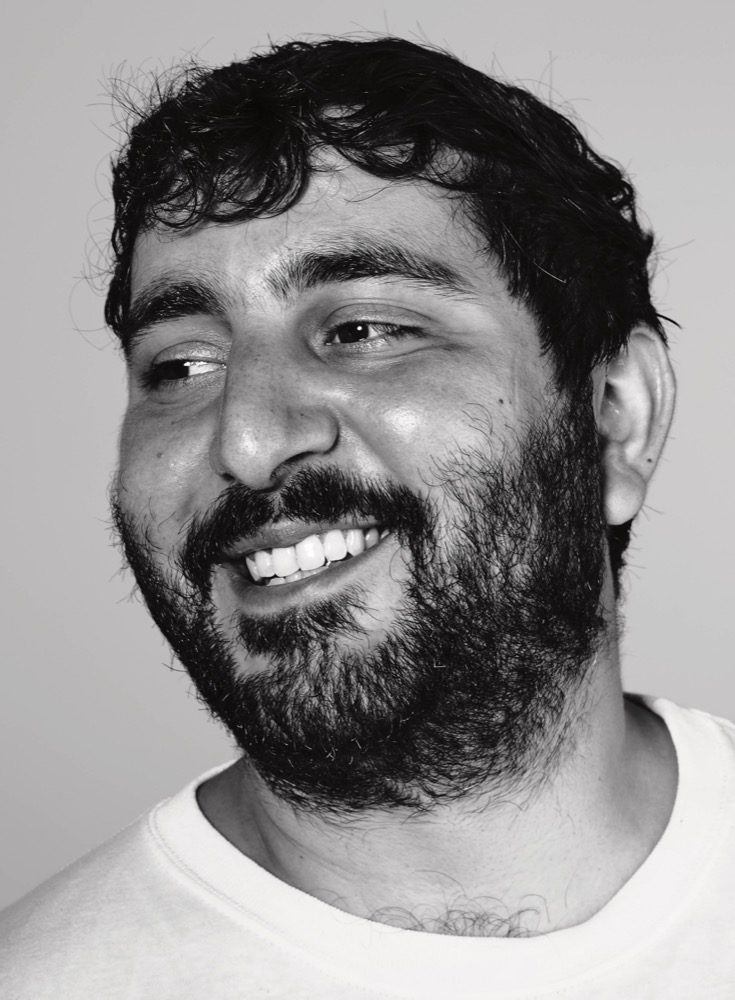
BORNA SAMMAK IN NEW YORK, JULY 2017.
Borna Sammak lives and mostly works alone. “I’ve been trying to think of some way of designing my life so that it’s less isolating,” he says while eating a bagel in his studio in Williamsburg, Brooklyn. “That’s the hard part about being an artist.” The 31-year-old Philadelphia native then ticks off some of the primary activities of his life: drinking, texting, tweeting, and, of course, making art. Sometimes, he’ll bring in help. “But I’m not a good boss,” he says. “An assistant just gets upset because I want to do everything wrong, and they want to do it the right way. I keep telling them to stop so we can look at it and fuck it up, ruin it.”
Sammak has received considerable attention in the art world over the past few years for his abstract wall works, built up not with paint, but with a noisy collage of vinyl beach-culture T-shirt graphics that are heat-pressed onto canvas. Phrases like “I’M THE BITCH THAT FELL OFF” and “HELP! I’M ON THE TELEPHONE AND I CAN’T SHUT UP!” commingle in a frenetic, explosive mess of cultural satire.
Recently, though, Sammak hasn’t been working as much. For him, the studio is too hot, too cold, too toxic, and jammed with equipment, including an embroidery machine that resembles an instrument of torture and a hefty, metal heat-pressing machine. At the moment, he is in what he calls “plotting” mode. He had a show set to open this month, but pushed it back because he wasn’t ready. It’s Sammak’s first time dragging his feet on a new series, and he mutters with a sense of self-blame, “I’ve been bad this past year.”
Sammak’s modesty is surprising when one considers the output that first caught collectors’ eyes: confident, ebullient works, brimming with ecstatic colors and shouting content. Last year at Sadie Coles HQ in London, he exhibited a sculpture of two subway turnstiles, one bright blue and one yellow, tangled up in each other—the kind of bold gesture that connects him to sculptural pop art predecessors such as Urs Fischer or Claes Oldenburg.
In this rare and no doubt short-lived moment of respite, he’s looking to add new elements to his practice. “I want to start over,” he says, even tossing out the idea of painting or drawing. And yet, it’s hard to imagine him veering too far from his clean, graphic aesthetic. “I love nice stuff, crispy and well put together,” he admits. “It’s like that dumb thing that Jay-Z says about being a rapper: Don’t do it unless you believe you can be the best. I want to be the best.”
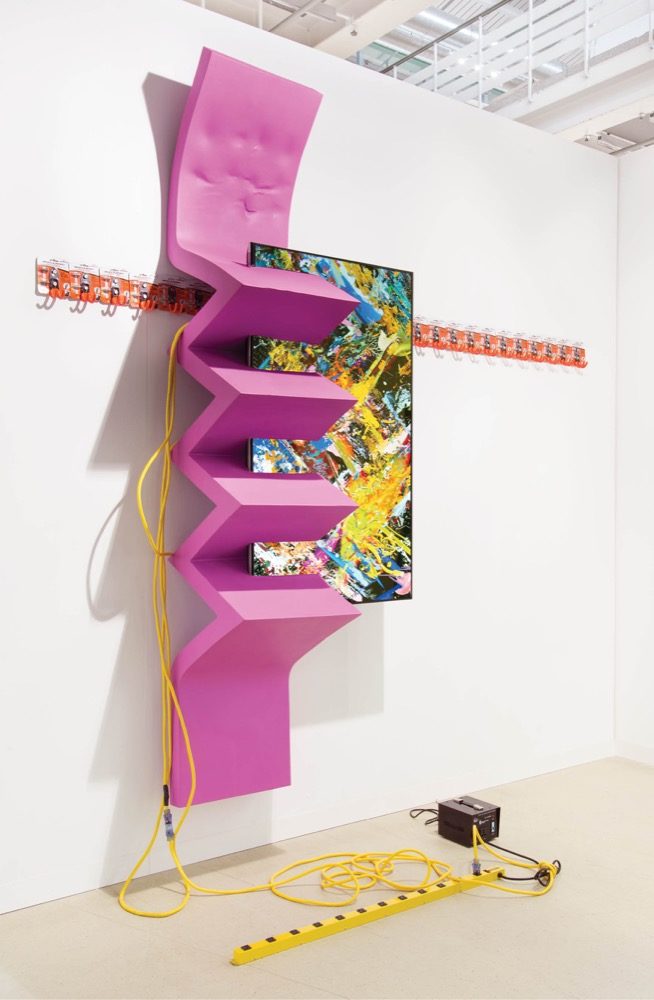
POWERMAD DUDE, 2015; TELEVISION, RUBBER, DRYWALL MOUNTS, EXTENSION CORDS, POWER STRIP, VIDEO; COURTESY OF THE ARTIST AND JTT, NEW YORK.
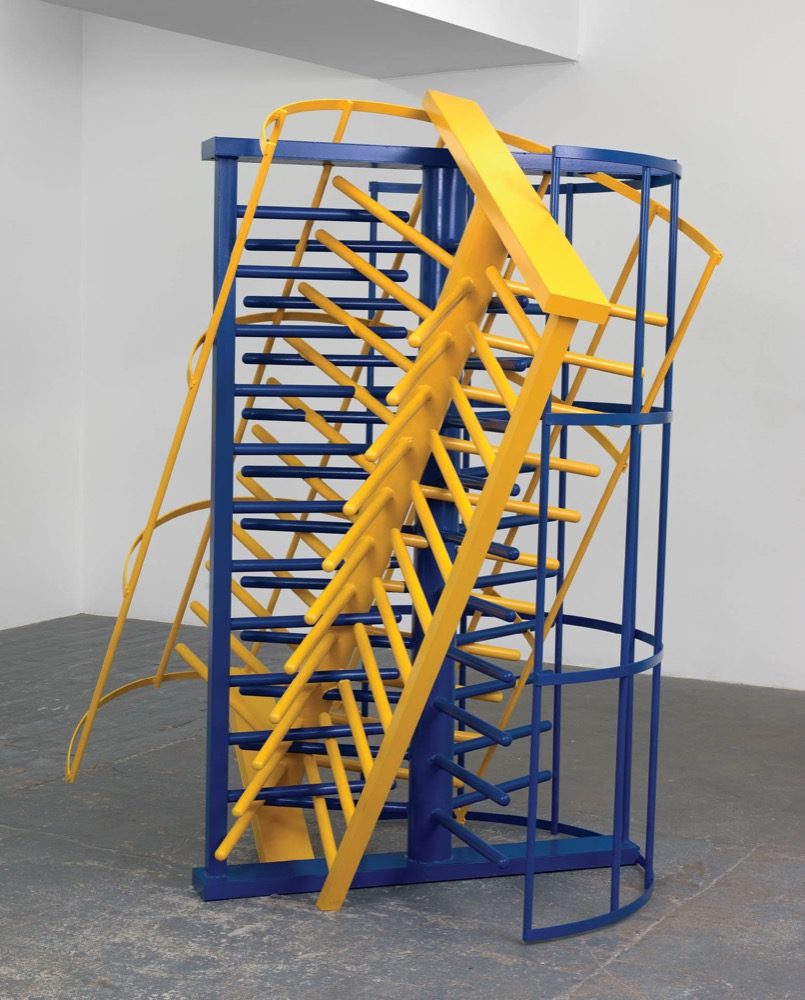
TWO FULL HEIGHT TURNSTILES STUCK IN EACH OTHER, 2016; STEEL, PAINT; COURTESY OF THE ARTIST AND SADIE COLES HQ, LONDON.
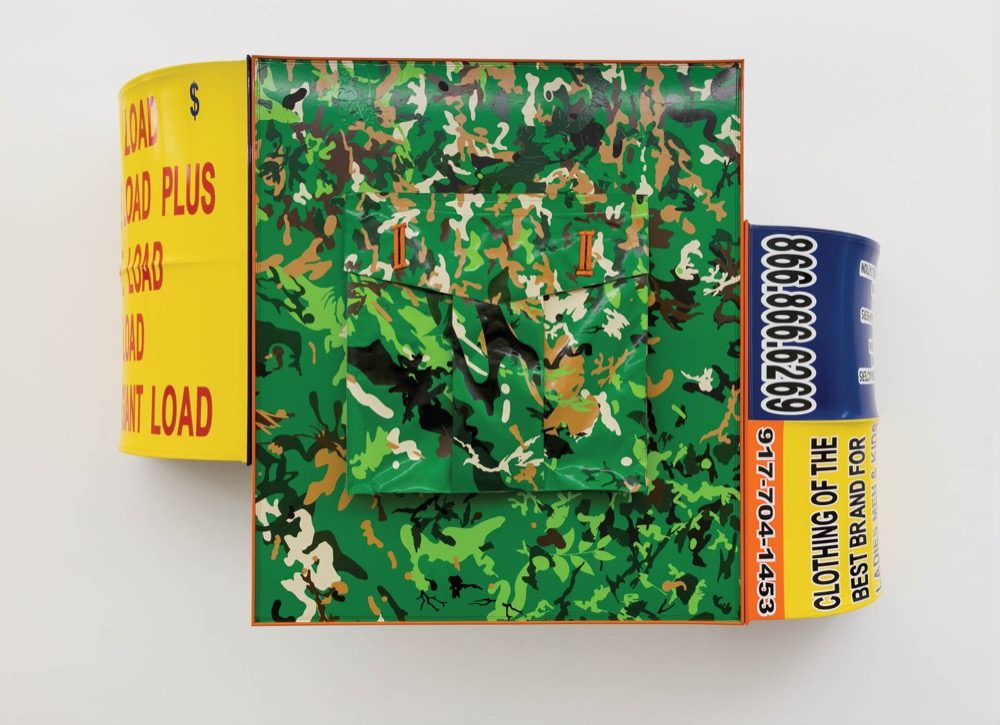
SUPER GIANT LOAD, 2016; AWNING VINYL, STICKER VINYL, EMBROIDERY, ALUMINUM, ENAMEL PAINT; COURTESY OF THE ARTIST AND JTT, NEW YORK. PHOTO: CHARLES BENTON.
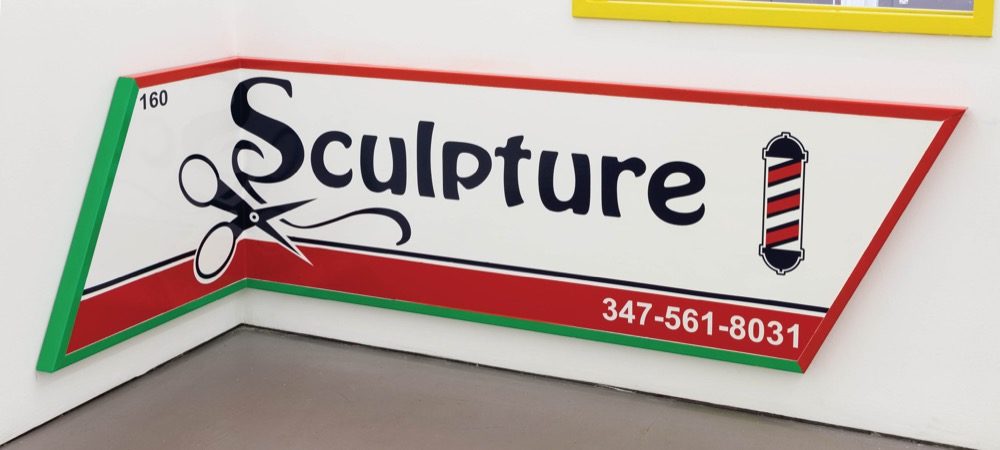
SCULPTURE, 2016; STEEL, WOOD, ENAMEL PAINT, VINYL; COURTESY OF THE ARTIST AND JTT, NEW YORK.

